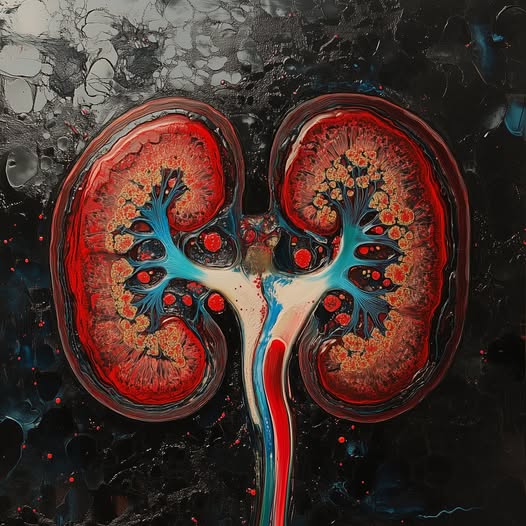About 500,000 emergency department visits each year are due to kidney stone issues. About 1 in 10 people will have a kidney stone at some point in their lives, according to the National Kidney Foundation. They are most common in men in their 40s and 50s.
Health experts recommend staying hydrated and reducing the consumption of food that increases the risk of kidney stones. When urine contains more fluid, it is less likely that minerals and salts will form stones. Darker urine is a sign of dehydration. Urine should usually appear pale yellow.
Therefore, experts recommend that a person drinks between 6 and 8 glasses of water per day to keep the body well hydrated. However, remember that taking in too much water may also be hard on the kidneys. Therefore, you should avoid overdoing it. Salt can increase water retention in the body and lead to dehydration. It also increases the amount of calcium in your urine. Consuming too much salt is also bad news for your kidneys.

Your kidneys are in charge of metabolizing 95% of the sodium absorbed through food. When the intake of salt is at a high level, your kidneys have to work harder to remove the excess salt. This may result in decreased kidney functions. Excess salt in your diet also causes water retention and increases your blood pressure. High blood pressure damages the kidneys over time, and is a leading cause of kidney failure.
Experts suggest that adults should keep their daily salt intake below 2,300 mg, which is equal to 1 teaspoon of table salt. Some examples of high salt foods include chips, deli or smoked meats, in addition to most packaged or prepared meals. Kidney stones are made of many different compounds, including uric acid, struvite, and cysteine. The most common type of kidney stone involves calcium oxalate.
One study analyzed nearly 44,000 kidney stones and found that 67% were composed mainly of calcium oxalate. Doctors usually only recommend restricting oxalate intake to those at a high risk of kidney stones or those with high oxalate levels. Consuming calcium alongside oxalate-rich foods may reduce the risk of kidney stones because it permits the binding of the chemicals together before they reach the kidneys.

Foods that contain high levels of oxalate include grapefruit, cranberry juice, potatoes, and soybeans. You should also limit animal protein such as red meat, poultry, eggs, and seafood. Animal protein increases the level of uric acid and could lead to kidney stones. A high-protein diet also reduces levels of citrate, which is a chemical in urine that helps prevent stones from forming.
The key function of your kidneys is to remove metabolic waste from your body and to regulate the production of red blood cells. To do this, your kidneys need water, and they need a good amount of it. When you do not drink enough water, your blood gets concentrated and there is less blood flow to your kidneys. This hampers the ability of your kidneys to remove toxins from your body, which can lead to many health problems. So, it is extremely important to drink adequate amounts of water to regulate the flow of fluids in your kidneys.
Some habits should also be avoided to protect your kidney. Smoking, for example, harms your blood vessels and reduces blood flow to the kidneys, potentially accelerating kidney function loss and worsening existing kidney diseases. Heavy alcohol consumption puts pressure on the kidneys, leading to dehydration and damage to the renal system, while also increasing the risk of liver disease which affects kidney function. Overuse of painkillers like aspirin can damage kidneys by reducing blood flow and being directly toxic to kidney tissue, contributing to 3% to 5% of new kidney failure cases annually. Try your best to avoid these habits to keep your kidneys healthy.
Source: Hashem Al-Ghaili; kidney.org
